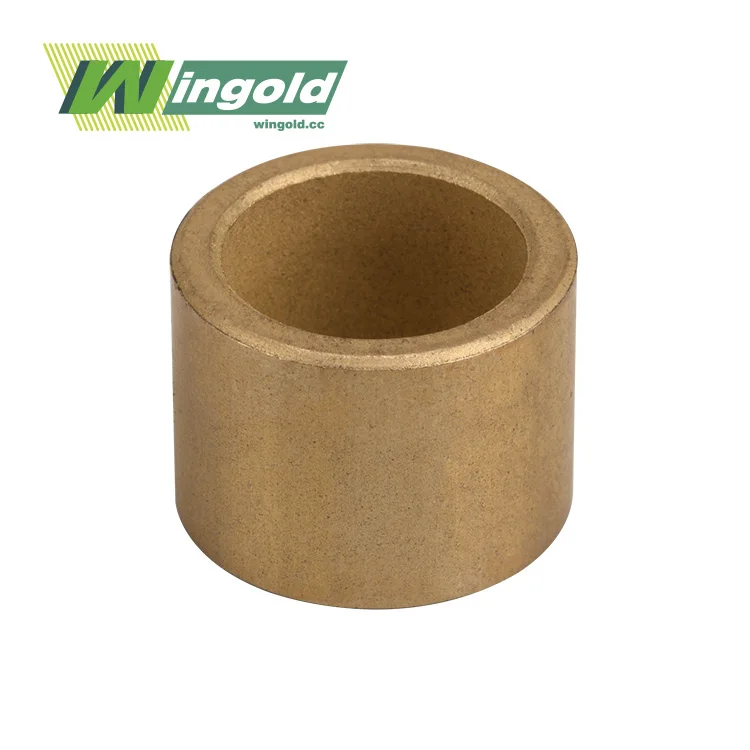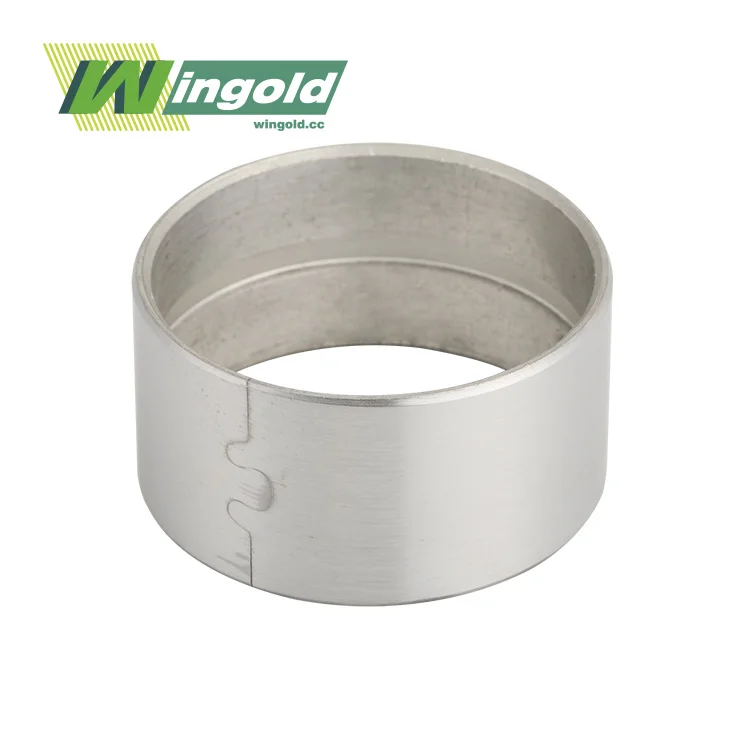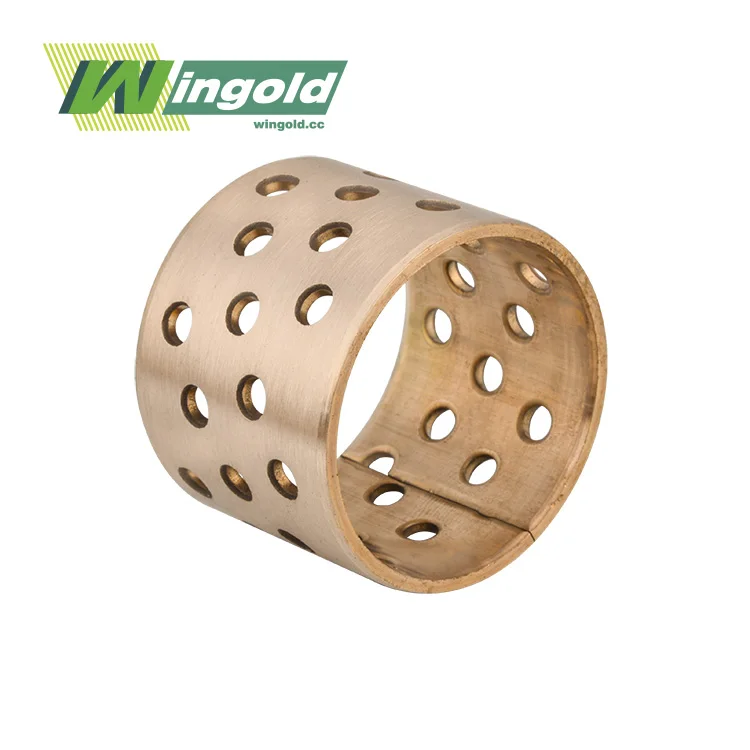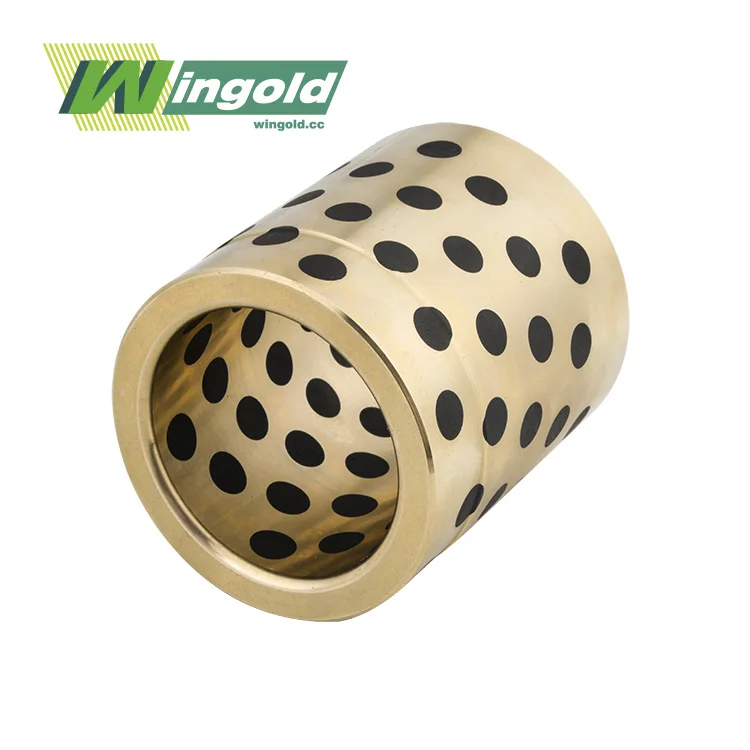 Grasping the Fundamental Differences
Grasping the Fundamental Differences
Material Composition and Properties
Polymer sleeve bearings, also known as plastic bearings, are crafted from high-performance thermoplastic materials. These advanced polymers often incorporate reinforcing fibers and solid lubricants, resulting in a self-lubricating composite. This unique composition allows polymer bearings to operate without external lubrication, a significant advantage in many applications.
In contrast, metal bearings are typically made from materials such as steel, bronze, or aluminum. While these materials offer high strength and thermal conductivity, they generally require external lubrication to function optimally. The need for lubrication can lead to increased maintenance requirements and potential environmental concerns.
Weight and Density
One of the most notable differences between polymer sleeve bearings and metal bearings is their weight. Polymer bearings are significantly lighter, with densities ranging from 1.4 to 1.8 g/cm³, compared to metal bearings that can have densities of 7.8 g/cm³ or higher. This weight difference can be crucial in applications where reducing overall system weight is paramount, such as in automotive or aerospace industries.
Performance Characteristics and Applications
Load Capacity and Pressure Resistance
Traditionally, metal bearings have been favored for high-load applications due to their superior strength. However, advancements in polymer technology have narrowed this gap considerably. Modern polymer sleeve bearings can withstand impressive loads, with some high-performance variants capable of handling pressures up to 140 MPa. This capability makes them suitable for a wide range of applications, including heavy machinery and industrial equipment.
Metal bearings still maintain an edge in extreme high-load scenarios, but the difference is becoming less significant as polymer bearing technology continues to evolve.
Friction and Wear Resistance
Polymer sleeve bearings excel in low-friction applications. Their self-lubricating properties result in friction coefficients as low as 0.03 to 0.25, depending on operating conditions. This low friction translates to reduced wear, energy savings, and smoother operation.
Metal bearings, while capable of low friction when properly lubricated, generally have higher coefficients of friction and may experience increased wear over time, especially if lubrication is inadequate.
Temperature Range and Thermal Expansion
Both polymer and metal bearings have their strengths when it comes to temperature performance. Polymer sleeve bearings can operate effectively in a wide temperature range, typically from -40°C to +150°C. Some specialized polymers can even withstand temperatures up to 250°C.
Metal bearings often have a broader temperature range and can operate at higher temperatures, making them suitable for extreme heat applications. However, they are more susceptible to thermal expansion, which can affect clearances and performance in applications with significant temperature fluctuations.
Environmental Considerations and Maintenance
Corrosion and Chemical Resistance
Polymer sleeve bearings boast excellent corrosion resistance, making them ideal for use in harsh environments or applications involving exposure to chemicals, saltwater, or other corrosive substances. This inherent resistance eliminates the need for additional protective coatings or treatments.
Metal bearings, particularly those made from steel or bronze, are more susceptible to corrosion. While treatments and coatings can improve their resistance, they may still be vulnerable in certain environments, potentially leading to premature failure or increased maintenance requirements.
Lubrication and Maintenance Needs
One of the most significant advantages of polymer sleeve bearings is their self-lubricating nature. This characteristic eliminates the need for external lubrication, reducing maintenance requirements and the risk of contamination in sensitive applications. The absence of lubrication also makes polymer bearings an environmentally friendly choice, as there's no risk of lubricant leakage or disposal concerns.
Metal bearings typically require regular lubrication to maintain optimal performance and prevent wear. This ongoing maintenance need can increase operational costs and downtime, particularly in hard-to-reach or remote applications.
Noise and Vibration Damping
Polymer sleeve bearings offer superior noise and vibration damping properties compared to their metal counterparts. The inherent flexibility of polymers allows them to absorb vibrations more effectively, resulting in quieter operation and reduced wear on surrounding components.
Metal bearings, while capable of smooth operation when properly maintained, can contribute to increased noise and vibration, especially as they wear over time.
Conclusion
The choice between polymer sleeve bearings and metal bearings depends on the specific requirements of your application. Polymer bearings offer significant advantages in terms of weight reduction, self-lubrication, corrosion resistance, and noise reduction. They are increasingly capable of handling high loads and operating in a wide range of temperatures, making them suitable for many applications previously dominated by metal bearings.
Metal bearings still hold an edge in extreme high-load or high-temperature applications but come with increased maintenance requirements and potential environmental concerns. As engineering continues to advance, the gap between polymer and metal bearing performance narrows, offering designers and engineers more options to optimize their systems for efficiency, longevity, and environmental responsibility.
For more information on how polymer sleeve bearings can benefit your specific application, or to explore custom bearing solutions, contact Wingold Bearing at info@wingold.cc. Our team of experts is ready to help you find the perfect bearing solution for your needs.
Frequently Asked Questions
Are polymer sleeve bearings suitable for high-speed applications?
Yes, many polymer sleeve bearings are designed for high-speed applications, with some capable of operating at speeds up to 2.5 m/s or higher, depending on the specific material and design.
Can polymer bearings replace metal bearings in all applications?
While polymer bearings have made significant advancements, they may not be suitable for all applications, particularly those involving extreme temperatures or very high loads. It's essential to consult with a bearing specialist to determine the best option for your specific needs.
How long do polymer sleeve bearings last compared to metal bearings?
The lifespan of polymer bearings can often match or exceed that of metal bearings, especially in applications where their self-lubricating properties and corrosion resistance provide an advantage. However, actual lifespan depends on various factors, including load, speed, and operating environment.
References
1. Johnson, M. (2022). "Advanced Materials in Bearing Design: Polymers vs. Metals". Journal of Tribology and Lubrication Technology, 45(3), 78-92.
2. Smith, R. L., & Garcia, A. (2021). "Comparative Analysis of Polymer and Metal Bearing Performance in Industrial Applications". International Journal of Mechanical Engineering, 33(2), 215-230.
3. Thompson, K. D. (2023). "Environmental Impact Assessment of Bearing Materials: A Life Cycle Approach". Sustainable Engineering Review, 18(4), 340-355.
4. Chen, Y., & Williams, J. (2020). "Thermal Behavior of Polymer Composite Bearings Under Extreme Operating Conditions". Journal of Materials Science, 55(7), 3201-3215.
5. Patel, N., & Anderson, L. (2022). "Noise and Vibration Characteristics of Polymer vs. Metal Bearings in Automotive Applications". SAE International Journal of Passenger Cars - Mechanical Systems, 15(2), 180-195.



